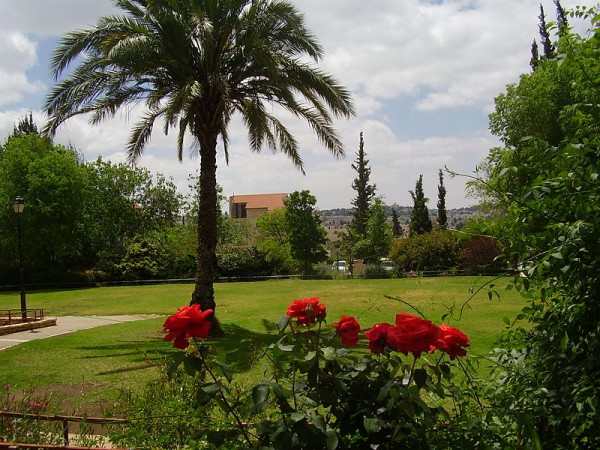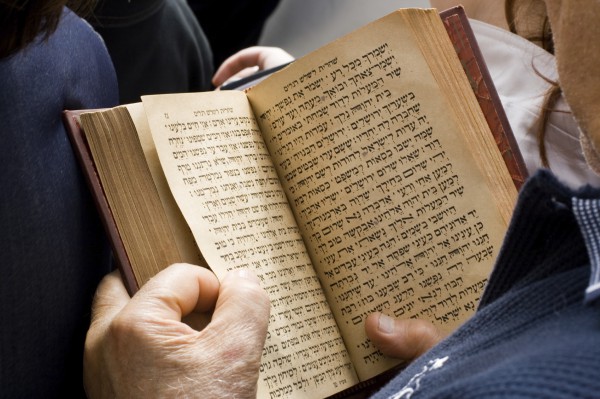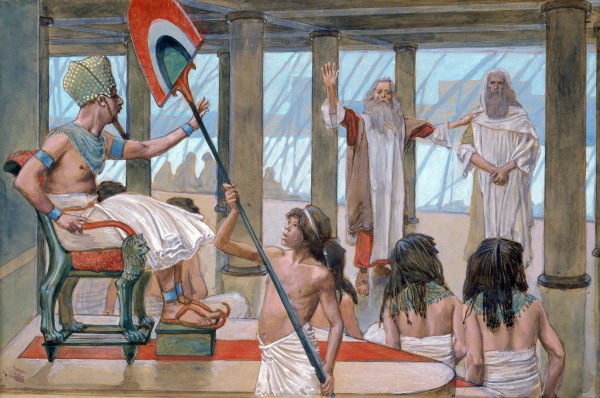“O Lord, our Lord, how majestic is your name in all the earth!” (Psalm 8:1)
Shakespeare wrote, “What’s in a name? That which we call a rose by any other name would smell as sweet.”
Essentially, he was saying that it doesn’t really matter what someone or something is called; the material essence of a thing matters more than its name.
The Bible, however, tells us differently.
According to Scripture, names do matter, and they have great significance, since they stand for something or reveal something about a person’s character.
There are even several instances when God changed the names of His people effectively giving them new capacities. For instance, Abram’s name was changed to Abraham, Sarai’s was changed to Sarah, and Jacob’s was changed to Israel.
The names of God, as He has unveiled them in Scripture, should be particularly noteworthy to us because they reveal who He is, as well as aspects of His character, promises, authority and power. And because God is so great, one name is not enough to fully portray all of who He is. But we will focus on one here—His very own personal name.
The Name of God
Does God want us to know Him intimately and call Him by name? Most definitely!
In fact, knowing His name today is a fulfillment of the prophetic Scriptures, since He declared that in these last days His people will know His name:
“My people will know My name; therefore in that day they will know that it is I who foretold it.” (Isaiah 52:6)
The Bible also tells us that in these last days, those who call upon God’s name will be saved.
“The sun will be turned to darkness and the moon to blood before the coming of the great and dreadful day of the Lord. And everyone who calls on the name of the Lord will be saved.” (Joel 2:31–32)
Just as those who know God’s name will be saved in the last days, God’s name was involved in the deliverance of the Jewish People from Egypt.
When God sent Moses on a Divine mission to liberate the nation of Israel from the oppression of slavery in Egypt, the first thing Moses wanted to know was God’s name. He said to God,
“Suppose I go to the Israelites and say to them, ‘The God of your fathers has sent me to you,’ and they ask me, ‘What is his name?’ Then what shall I tell them?” (Exodus 3:13)
Moses knew that he could not go to the children of Israel in his own name.
Even though he had been raised in Pharaoh’s court, he did not have the power or the authority. But if he came in the majestic name of God, the Israelites would know that the God of Israel was about to set them free from Egypt, even if Pharaoh opposed Moses.
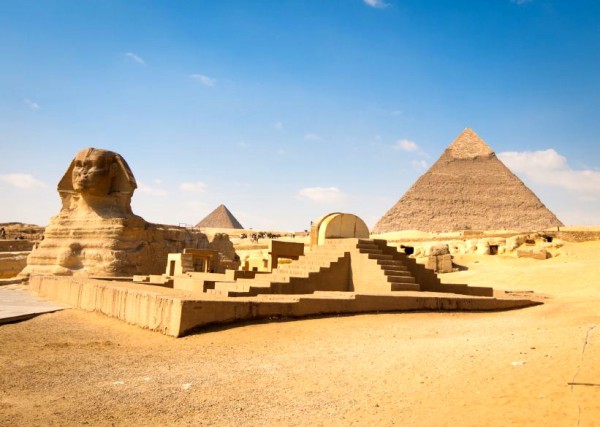
Great Sphinx of Giza in Egypt: When God made the covenant with Abraham, He told him that his descendants would be enslaved and mistreated in “a country not their own” for 400 years, and then leave that country with “great possessions.” (Genesis 15:12-16) According to Exodus 12:40, the Israelites remained in Egypt for 430 years before God delivered them through Moses.
I Am that I Am
“God said to Moses, I AM WHO I AM. This is what you are to say to the Israelites: ‘I AM has sent me to you.'” (Exodus 3:14)
When Moses stood before God at the Burning Bush inquiring about His name, God understood how important it was that Moses was able to reveal to the Israelites this important piece of information.
In response, God told Moses ‘Ehye Asher Ehye’ (אֶהְיֶה אֲשֶׁר אֶהְיֶה) or simply ‘Ehye’ (אֶהְיֶה).
In most English Bibles this name is translated as “I Am Who I Am” or simply “I Am.” (Exodus 3:14)
As in all the names that God uses to reveal Himself, this key name of God tells us some essential information about who He is.
The Hebrew alphabet gives a clue to the meaning behind this name.
The fact that it begins with Aleph (אֶ), the first letter of the Hebrew alphabet, is indicative of the future tense. Therefore this name can be translated ‘I Will Be Who I Will Be.’
This should give us confidence and encourage us since we can understand that God is not only with us right now, but He goes ahead of us into our future, which may be unknown to us but is completely known to God.
He is faithful and will be whatever we need, not only now, but also in any situation that we will face in the future.
God is saying, “I will be whatever I choose to be in this circumstance: healer, deliverer, provider, protector. I will be that for you.”
In its essence, this name conveys a sense of both the timeliness and timelessness of God—the God who was, and is, and is to come (Revelation 4:8).
The Tetragrammaton: YHVH (יהוה)
“God also said to Moses, ‘I am the LORD [YHVH]. I appeared to Abraham, to Isaac, and to Jacob as God Almighty [El Shaddai], but by My name the LORD [YHVH] I did not make myself known to them.” (Exodus 6:2, 3)
In Scripture, God reveals His sacred, four letter proper name. However, most Jewish people will not speak this personal name out of reverence for His holiness and fear of transgressing the command that forbids using God’s name in vain (Exodus 20:7).
Instead, the term Adonai (my Lord) or Hashem (The Name) is substituted.
This sacred name comprises the following Hebrew letters: yud, hey, vav, hey—YHVH ( יהוה ).
This name is technically known as the Tetragrammatan, which is a combination of two Greek words meaning four letters.
Since the original Hebrew text did not use vowels, it is impossible to determine the exact pronunciation of this name, and therefore it has been the subject of much speculation and controversy. It is often transcribed in English as Yahweh or Jehovah.
Instead of using one of these English variations, many English Bible translations print the word LORD (in all caps or small caps to distinguish it from other Hebrew words that are translated Lord).
They do this out of tradition or respect for the name of God.
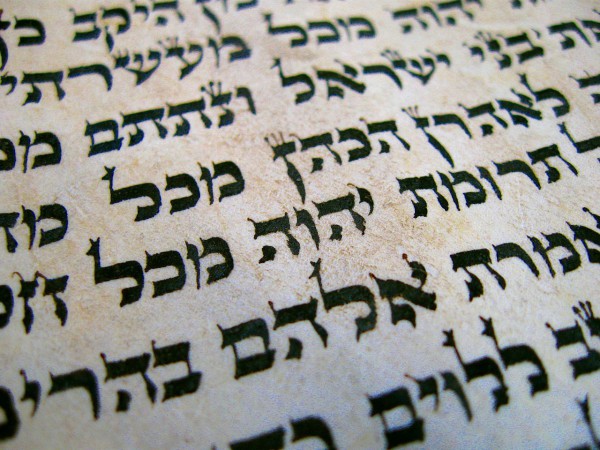
Handwritten Hebrew: The Tetragrammaton (meaning Four Letters), the word that is roughly in the middle of the image, is the name God revealed to Moses (YHVH). It is often written as LORD in English translations of the Bible out of reverence for the sacred name of God.
In Exodus 3, YHVH is I AM.
Immediately after telling Moses to say to the Israelites that “I AM has sent me to you,” God also tells him, “Say to the Israelites, The LORD [YHVH]… has sent me to you.”
Many scholars believe that the Tetragrammaton is derived from the Hebrew word to be (היה) and, therefore, related to I AM, or I Will Be (אֶהְיֶה).
God’s personal name is so closely associated with His very being that He wants every generation to know and remember it:
“This is My name forever, the name by which I am to be remembered from generation to generation.” (Exodus 3:15)
Knowing God’s Name: A Turning Point
When God revealed His proper, personal name to Moses, He transformed the relationship between Himself and His people.
We can liken it somewhat to being suddenly on a first-name basis with someone after calling him or her for an extended period of time Sir or Madame.
Even though God called Abraham His friend (Isaiah 41:8), He didn’t reveal His personal name to him, nor to Issac and Jacob (later named Israel).
Instead, He revealed a part of Himself: El Shaddai (אֵל שַׁדָּי—God Almighty).
“When Abram was ninety-nine years old, the LORD [יהוה] appeared to him and said, ‘I am God Almighty [אֵל שַׁדָּי]; walk before me and be blameless.'” (Genesis 17:1; see also Exodus 6:3)
Certainly YHVH showed His powerful might when He overcame Pharaoh and miraculously delivered the children of Israel from Egypt. During troublesome times in our lives, we need His powerful intervention as well.
He is Almighty.
Although some people may foolishly put their trust in their own resources or abilities, those who know the God of Israel can put their trust in His name, knowing there is safety, power, protection, healing, and refuge in the name of God.
“Some trust in chariots and some in horses, but we trust in the name of the Lord our God.” (Psalm 20:7)
He is I AM.
“The name of the Lord is a strong tower; the righteous run into it and are safe.” (Proverbs 18:10)
As covenant people of the God of Abraham, we can reclaim God’s authentic name and its accompanying power as part of our inheritance.
“Therefore I will teach them—this time I will teach them my power and might. Then they will know that my name is the LORD [YHVH].” (Jeremiah 16:21)
Yeshua (Jesus) has commissioned us to make disciples of all the nations (Matthew 28:19).
Just as Moses needed to know the name of the Lord to deliver the Israelites from Egypt, we also need to know the name of the Lord to share the good news of Yeshua (Jesus) with Israel and the nations.
When we know His name, we better understand who He is and teach others also.
“I will make known My holy name among My people Israel. I will no longer let My holy name be profaned, and the nations will know that I the LORD [YHVH] am the Holy One in Israel.” (Ezekiel 39:7)





